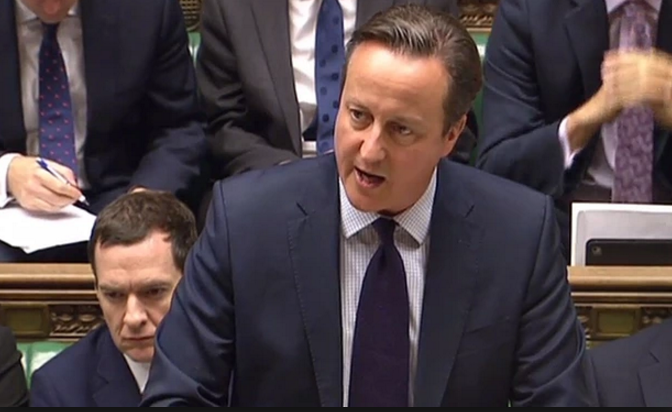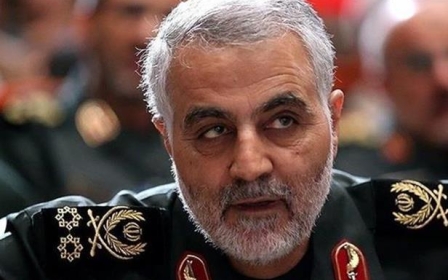Cameron doesn't know what he's doing so he shouldn't go to war

It’s more than 12 years since I watched Tony Blair deliver his notorious speech to the House of Commons on 18 March 2003, making the case for war a few days ahead of the invasion of Iraq. The prime minister was fluent and persuasive. As we all know today, he won in the House of Commons. And as we all know today, his case was fatally flawed.
David Cameron also made a very well-received speech today. Though no date has been announced, it is now likely that parliament will vote on air strikes next week, in which case Britain’s warplanes could be in action over Syria early next month.
The stakes are much lower than in 2003. Britain’s contribution to the war effort will be confined to a handful of Tornado bombers, with no more than two aircraft in the air at any one time.
We are talking about a gesture of support to allies, rather than a decisive intervention that will change the course of the war.
Even so, the British prime minister failed to make a convincing case for British military involvement. Is the intervention legal? The prime minister says yes, but (in an echo of 2003) he will not publish the official advice from his Attorney General.
The prime minister accepts that air strikes will not eradicate IS without the support of ground troops. He claims, however, that there are some 70,000 ground troops on Syrian soil ready to wage war on IS. These are apparently made up of Free Syrian Army "moderates" along with Kurds.
I understand this figure corresponds with Saudi estimates, but many well-informed observers are dubious. It is suspicious that Cameron did not go into further detail about the identity of these "moderates".
The history of the civil war in Syria suggests that some of the "moderates" may not exist, that others may be working closely with jihadist groups, and yet others may not be "moderate" at all. As for the Kurds, they will fight courageously against IS – but their record suggests only in defence of Kurdish territory.
The British prime minister made clear that he was relying on the chairman of the UK's Joint Intelligence Committee (JIC) for his figure of 70,000 fighters. Yet he provided no information about the basis for the JIC calculations, for instance what reservations and caveats were expressed.
It cannot be forgotten or forgiven that 12 years ago the information provided by the JIC chairman Sir John Scarlett concerning Saddam Hussein’s supposed weapons of mass destruction turned out to be worthless. Cameron claimed that new procedures are now in place. It remains to be seen whether they can be relied upon.
At times, the British prime minister appeared not to know what he was talking about. He spoke of Syrian Sunni Muslims as if they were a monolithic block, all opposed to Syrian President Bashar al-Assad. This is not the case. A fair number of Sunnis support the Assad regime - for instance many of the president’s cabinet are Sunni, and the most prominent Sunni religious leaders speak out in favour of Assad. These facts cannot be brushed aside, as the British prime minister just did.
Meanwhile, Cameron’s vision of a grand political settlement that would unite Syria against IS once Assad departs sounded like fantasy. Judging by his record, Cameron is not much good at foreign policy. His attack on Libya ended in disaster, and he has been wrong about Assad from the start of the civil conflict four and a half years ago.
He said that Assad would go. He backed "moderate" forces who turned out to have little or no traction on the ground. He appears to have been taken by surprise when jihadist forces emerged to dominate the opposition. He refused to talk to Iran for far too long. Why should we suddenly trust the British prime minister now?
Of course, the world must confront IS. But a handful of extra bombers adding to the confusion over Syrian airspace will not help. Fighting IS means creating a grand international coalition embracing all the states in the region - Iran, Saudi Arabia, Turkey, Iraq, Jordan, the Gulf states - and Syria herself.
This is hard, especially since many of them (above all Turkey) have been guilty of tolerating, if not actively, helping IS. Cameron has made clear that he was not prepared to work with the one force that is fighting hardest against IS - the Syrian army. This is incoherent.
French President Francois Hollande has over-reacted to the atrocities in Paris in the same way that George W Bush over-reacted to the terrible events of 9/11. He has lashed out domestically by declaring a state of emergency, and internationally with bombing raids.
Hollande’s reaction solves nothing and may well be counter-productive but it is at least understandable. There is no excuse for Britain following suit.
There is one other point that most observers have overlooked. What about civilian casualties? The British prime minister claims that British bombing technology is more accurate than the Americans.
The United States claims that only half a dozen civilians have died since it launched its campaign of airstrikes against IS across Syria and Iraq 15 months ago. Airwars, which compile lists of civilian deaths, asserts that the true figure is at least 680 and possibly as high as 975.
There would be a dark irony if Britain (and France) killed innocent people in our quest to hurt IS. Cameron’s strategy, as set out today, is to bomb and hope for the best. We should not go ahead until we have a better idea of what we are doing.
- Peter Oborne was British Press Awards Columnist of the Year 2013. He recently resigned as chief political columnist of the Daily Telegraph. His books include The Triumph of the Political Class; The Rise of Political Lying;and Why the West is Wrong about Nuclear Iran.
The views expressed in this article belong to the author and do not necessarily reflect the editorial policy of Middle East Eye.
Photo credit: David Cameron giving his speech to the House of Commons (AFP)
New MEE newsletter: Jerusalem Dispatch
Sign up to get the latest insights and analysis on Israel-Palestine, alongside Turkey Unpacked and other MEE newsletters
Middle East Eye delivers independent and unrivalled coverage and analysis of the Middle East, North Africa and beyond. To learn more about republishing this content and the associated fees, please fill out this form. More about MEE can be found here.





